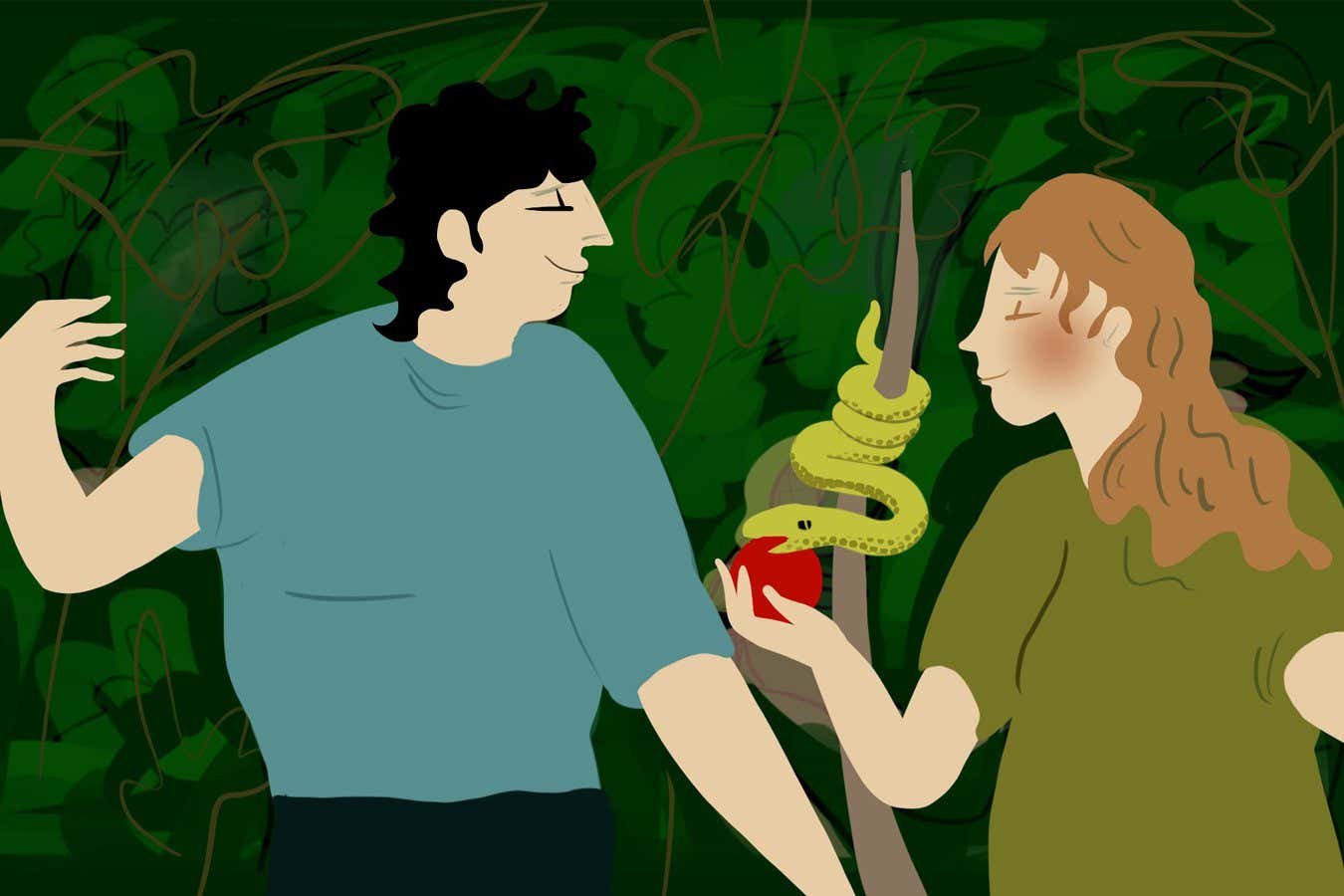
A biblical approach
Praise be, there is a new book from psychologist-turned-YouTuber Jordan Peterson. We Who Wrestle With God is about how ancient myths and legends, while perhaps not literally true, contain valuable and even universal lessons about life and humanity.
Feedback was nodding along to this. Anthropologists will tell you there’s a lot to be gleaned from the study of myths. You can get a sense of how past societies thought about the relationships between ordinary people and elites, or their views on humanity’s place in the natural world.
But then we got to the final page of the introduction and the penny – which had somehow remained elevated – dropped. This isn’t a global survey. It is solely about stories from the Bible, and almost entirely from Genesis and Exodus, because the Bible is “the story on which Western civilisation is predicated” and “the foundation of the West, plain and simple”.
Feedback’s grasp of intellectual history is admittedly a little hazy, but we are pretty sure Western societies and modern science, while shaped by Christianity, were also influenced by ideas from the ancient Greeks, the Roman Empire, the Norse, the Arabic scholars that laid the foundations for the scientific revolution, and more.
But we aren’t going to pretend we are expert in Biblical exegesis. We are happy to leave the theological critique to Rowan Williams, former Archbishop of Canterbury, who says Peterson “relies a lot on rather dated Christian commentaries” and has an “insistent contempt for nuance and disagreement”.
Instead, we will unpack one little section, where Peterson tries to link his ideas to human biology – something we do know a bit about.
The problem with Eve
Chapter 2 is about Adam and Eve being thrown out of the Garden of Eden after Eve, tempted by a serpent, eats a forbidden fruit and talks Adam into doing the same.
Peterson says this reflects fundamental flaws in the minds of men and women. “The temptation that eternally confronts the woman,” he writes, “is the idea that maternal benevolence can be pridefully extended to the entire world, to even the most poisonous of snakes… to use her compassion, however ill-placed and false, to claim unearned moral virtue and ability.”
Meanwhile, men have “a corresponding and equally deadly sin”, which is the belief that they can “incorporate, master, name and subdue, and put into proper order anything that you bring before me” – no matter how “overreaching” or “preposterous”.
It is the role of women to be compassionate, drawing men’s attention to those who are suffering, while men must exercise their “emergent authority” and make judgements about who deserves help.
Given this book purports to reveal absolute truths about human nature, Feedback enjoyed the lack of self-reflexiveness in that line about the dangers of “overreaching”.
Now, you might expect Peterson, a psychologist, to offer psychological evidence for these differences between men and women. You would be wrong. But he does try to link it to the biology of childbirth. Labour, he explains, is painful and dangerous because human babies have evolved bigger brains, which must fit through a narrow birth canal that cannot get any wider or “women would have trouble running”.
This triggered the firing of a neuron in Feedback’s overloaded brain. Peterson is restating a hypothesis called the “obstetrical dilemma“, set out in 1960.
Today, it is one of the most contested notions in anthropology: its underlying assumptions have all proved untrue or questionable. A 2018 study was bluntly titled “There is no ‘obstetrical dilemma’”. A 2021 riposte said that (deep breath) “it is unwarranted to reject the obstetrical dilemma hypothesis entirely because several of its fundamental assumptions have not been successfully discounted”.
Feedback isn’t wise enough to resolve this knotty dispute. But at least, unlike Peterson, we realise that. He goes on to say pregnant and nursing women manifest “increased dependency” and therefore cannot compete with men for status, and at this point we exercised our emergent authority and stopped reading.
Word of the year
Feedback enjoys the annual ritual of dictionaries announcing their word of the year, which tells us something about shifting mores. We were especially pleased to learn of the existence of the Macquarie Dictionary, the national dictionary of Australia, and its decision that the word of 2024 is “enshittification“.
This excellent word was coined by writer Cory Doctorow to describe how companies gradually make their services worse as they squeeze more profits out of their customers. He was referring to companies like Google, whose search results are riddled with adverts and untrustworthy AI-written summaries, and Facebook, whose newsfeed is so full of memes and adverts that you can barely see anything from your friends or family.
Feedback has been using the word ever since we read Doctorow’s initial essay, and we are delighted to see it find a wider audience.
Got a story for Feedback?
You can send stories to Feedback by email at feedback@newscientist.com. Please include your home address. This week’s and past Feedbacks can be seen on our website.








